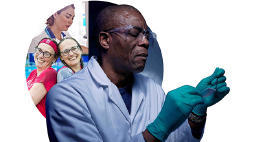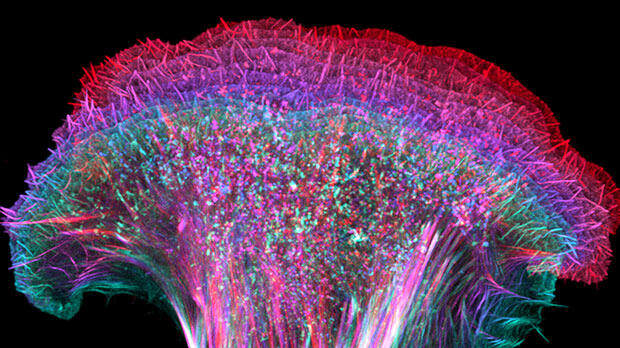Our research in Cambridge
In Cambridge
-
Around 520 people are diagnosed with cancer each year.
-
56% of cancers are diagnosed early.
- We spent over £46m on life-saving research in 2022/23.
We receive no government funding for our research. Our life-saving work relies on the money you give us.
Last year, we spent over £49m on research in Cambridge to pioneer new ways to prevent, diagnose and treat cancer.
Cambridge is home to the Cancer Research UK Cambridge Institute and the Cambridge Centre, which deliver world-leading research that transforms discoveries in the lab into real benefits for people with cancer.
Our Cambridge Experimental Cancer Medicine Centre (ECMC) is a unique partnership between CRUK, the University of Cambridge and Cambridge University hospitals. The Cambridge ECMC brings together lab-based scientists and clinical researchers, enabling them to share ideas and resources to drive the discovery, development and testing of new anti-cancer treatments and tests for patients.
In addition to its adult expertise, the Cambridge ECMC recently became a member of the Paediatric Network, which specialises in early phase clinical trials in children and young people with cancer.
The Cancer Research Horizons sites in London and Cambridge bring together the brightest minds in basic and clinical cancer research, with the rigour and drive of pharmaceutical and biotech companies.
You can now take a virtual tour around the Cancer Research UK Cambridge Institute and see inside the labs where our researchers carry out their life-saving work.
What we're doing now
Cancer Grand Challenges
As well as Professor Hannon’s virtual reality tumour maps project, several other researchers in Cambridge are involved with Cancer Grand Challenges projects.
For example, Professor Sir Mike Stratton, Director of the Wellcome Sanger Institute in Cambridge, is leading a team that spans five continents and aims to build a deeper understanding of what causes DNA damage and how it leads to cancer. Their work could help prevent more cancers and reduce the global burden of this disease.








